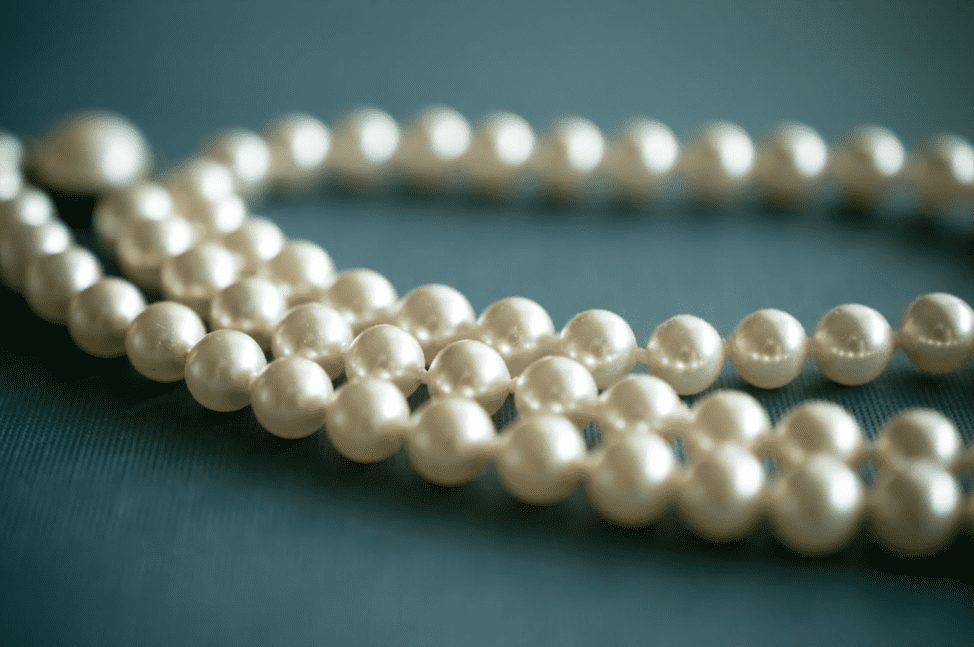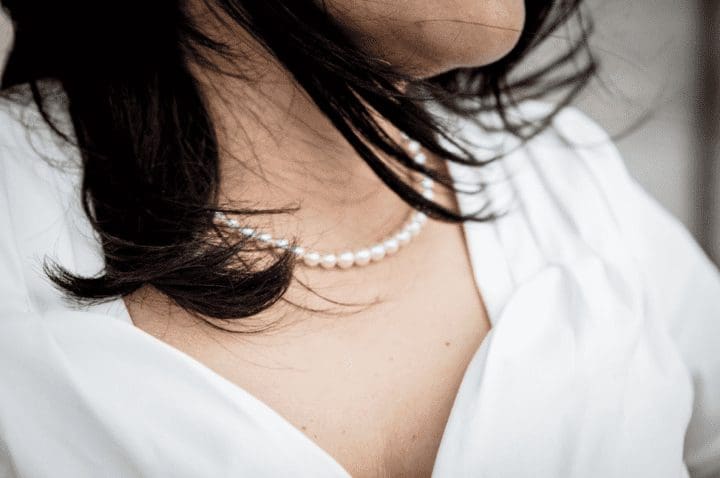A Complete Guide to Pearl Jewelry
A Complete Guide to Pearl Jewelry
For decades, our society has been fascinated by pearls. They were once a mythological symbol for tears of joy by the goddess Aphrodite and soon became the status symbol for luxury, wealth, and elegance. Pearls were usually worn by royalties, nobles, and the elite. Due to the high demand, natural pearls have become one of the most desirable gems on the market. This ultimately posed a great opportunity for businessmen to commercially produce pearls.
Today, most of the pearls used in the creation of pearl necklaces, earrings, and pearl rings are cultured pearls, meaning gems produced by mollusks with human assistance. However, real, beautiful pearls do command a high price, often making people question what makes them so expensive. It's very easy to buy gold diamond hoop earings. To find out, keep reading and learn what makes pearls valuable.

A Complete Guide to Pearl Jewelry
How are pearls created?
The one thing that makes pearls so unique compared to other gemstones is that they are created by mollusks, usually oysters, clams, mussels, or anything that has shelves. However, not all mollusks can produce the shiny lustrous nacre of the pearl. The process of creating pearls starts when an organism or irritant enters the mollusk. To protect itself, the irritant creates a pearl sac and then covers it with a protective layer called nacre. The inner shell is lined with nacre, also known as the mother of pearl. Over time, the nacre grows around the irritant, forming what we now recognize as the pearl.
Natural vs. cultured pearls
Like diamonds or any other gemstones, pearls can be natural or cultured. Natural pearls are those that are formed in mollusks without human intervention, whereas cultured pearls are grown in pearl farms with human assistance. In general, natural pearls make up only 1% of all pearls on the market, and most of them are found in vintage pearl jewelry. They are rarely found in perfectly round shapes, as only 1 in 10,000 mollusks produces a pearl that can be sold. Meanwhile, cultured pearls are what we normally see on the market today that have a perfectly round shape.
The only way to determine if a pearl is natural or cultured is via x-ray. This allows you to see the composition of the pearl and examine whether it has rings surrounding the irritant. The rings are the layer of nacre that surrounds the irritant, which means that it is a natural pearl.
Common types of pearls
There are two types of pearls saltwater and freshwater pearls, both of which come in many shapes, colors, and sizes. Freshwater pearls, for example, are the most popular and least expensive. They are very easy to find as they are grown in lakes or ponds. They are also available in round shapes, with pink, white, and other pastel colors.
Saltwater pearls, on the other hand, are divided into three subtypes and these are Akoya, South Sea, and Tahitian pearls. The Akoya pearls are considered the most classic white pearl type, whereas the Tahitian pearls are typically black pearls with green overtones making them unique. They are also more expensive than Akoya pearls.
South Sea pearls are the biggest and most valuable of all pearl types, and you can find them in white and natural golden colors. The rule is the deeper the gold, the more valuable the pearl is.
How are pearls graded?
Pearls are graded based on seven characteristics which include size, luster, color, shape, surface quality, nacre thickness, and matching. The higher the grade is, the more expensive the pearl is. While all characteristics increase the value of a pearl, a few may have a great impact on the price. For example, the size is one of the important factors that determine the value of the pearl. It is determined by the size of the mollusk, which means the larger the nucleus in the mollusk is, the greater the chance that it will be rejected.
Another important factor that affects the pearl's value is its luster. This refers to how shiny the gemstone needs to be, and it is graded between excellent and poor.

There’s no denying that pearls are one of the most popular and beloved gems in the world. They range in price from $100 to millions of dollars as they come in a wide range of styles, shapes, colors, and sizes. To determine the real price of a pearl, there are a few things you need to consider, such as the origin of the pearl, the type, and its main characteristics. For more information, refer to our guide and learn what makes pearls expensive.







Pingback: 10 Fantastic Spring Styling Tips - Divine Lifestyle
Pingback: How to make the most of your Rocksbox subscription